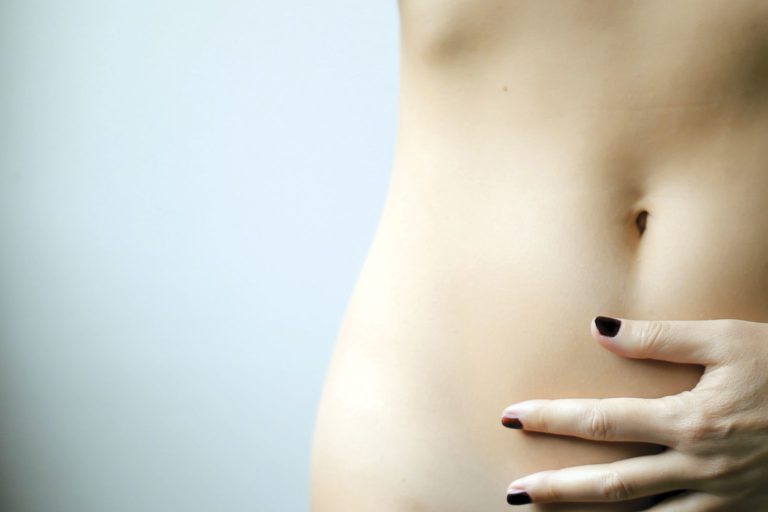HEALTH FOOD
Gut health: Why is it so important?

WORDS: Rick Brennan PHOTOGRAPHY Supplied
Maintaining optimum gut health is paramount to digestion, immune function, nutrient absorption and influencing positive impacts (thought processes) on the brain.
The human gut has become one of the hottest, most talked about topics in the health and wellness sector in recent years. The advantages associated with the psychological and physiological benefits are endless. We now have a better understanding of our gut’s complexity and importance for overall health.
The vagus nerve is a communication superhighway between our gut and brain with 90 per cent of the communication travelling from our gut. It is important we understand that what we eat, when we eat and how we eat plays a far greater role than once thought. For years, our gut has been something of a mystery, but research now reveals our gut impacts both mood and appetite. Gut bacteria can influence our mood, preventing depression by producing neurotransmitters (precursors) for substances such as dopamine and serotonin, which influences gut immunity and plays a key role in our emotions.
We have more than 100 million neurons located in our gut (cats have around 300 million and dogs approximately 500 million, which allows us to understand how intelligent our gut is) regulating the gastrointestinal tract. These neurons that line our digestive tract are in constant contact with our brain and have an enormous impact on the way we look and feel, while also impacting many of the subconscious decisions we make throughout the day. I am sure you have heard of the common phrase ‘go with your gut’. Well, this is the reason why.
Diet early in life also has a long-lasting effect on gut microbiota. Each person has a distinct and variable gut microbe composition, although a core set of microorganisms is common to all individuals. We should think of our gut microbiome as a rainforest where we ideally want a diverse range of bacteria to help promote health, ward off illness and protect us from pathogens. To ensure we maximise these benefits, we need a diverse diet to feed all the different bacteria in our gut. A mono style diet is popular in today’s society, with people buying the same food each week. The lack of diversity in their food choices, combined with a diet high in refined carbohydrate foods such as cereals, white bread, biscuits and cakes, does not aid in diversifying gut bacteria. A mono diet not only feeds bad bacteria which inhibits beneficial bacteria from doing their job but also only provides the gut with limited strains of good bacteria. Sugar and refined carbohydrates feed non-beneficial bacteria to grow, crowding out the beneficial bacteria which provide energy regulation, gut barrier function (leaky gut) and protection from pathogens. A healthy, diverse gut microbiome is critical for breaking down carbohydrates, proteins, and to a lesser extent, fat that reaches our lower intestinal tract.
I recommend a gut restore plan for my clients if they experience brain fog, skin conditions, depression, anxiety or any other IBS symptoms. An effective functioning gut with a balanced gut microbiome has many health benefits. We are now starting to understand the benefits of prebiotics and probiotics and how they affect our gut microbiome. Prebiotics are fibres that feed healthy gut bacteria or, as I like to call them, “the soil to our garden bed”. They keep the lining of the gut healthy, which helps reduce inflammation, increase nutrient absorption and improve immunity. Foods such as whole grains, beans, legumes, fruits and vegetables (inulin found in garlic and onions) are considered some of the best sources of prebiotics available. My preferred source of prebiotics comes from resistant starches as they feed the beneficial bacteria in our gut. Resistant starches are found in grains, seeds, legumes, raw potatoes and green bananas, while others are formed when starchy foods, including rice and potatoes, are cooked then cooled in a refrigerator. The cooling turns some of the digestible starches into resistant starches via the cooling process.
If prebiotics are considered the soil of our garden, then probiotics are the flowers and trees. For our gut flora to flourish, we need diversity for healthy bacteria to thrive in this delicate ecosystem. Probiotics are the live bacteria found in fermented foods with live cultures such as sauerkraut, yogurt, kimchi, kombucha tea and I also like to include apple cider vinegar. The probiotics (beneficial bacteria) need to be nurtured and fed by quality sources of prebiotics to keep them alive to keep our gut healthy.
We must understand how our gut impacts our health and the foods that offer the greatest benefits. I think it is equally important we understand what foods have been shown to cause issues and where we can reduce or eliminate them from our diet. Here are some foods for you to consider. I encourage you to undertake your own trial to see the impacts they have on you personally. This gives you foundations to make informed choices in the future by understanding these foods and some of their effects:
- Gluten
- GMO foods
- Dairy
- Red meat – higher quantities
- Soy
- Fried foods
- Processed foods
- Alcohol.
* Rick Brennan is a certified personal trainer, strength and conditioning coach and sports nutritionist with more than 25 year’s experience in the health and fitness industry. Rick has helped change the lives of thousands of people through his body transformation coaching and online personal training and nutrition programs tailored to individual needs and wants.
Email [email protected] or visit www.rickbrennan.com.au to find out more.










